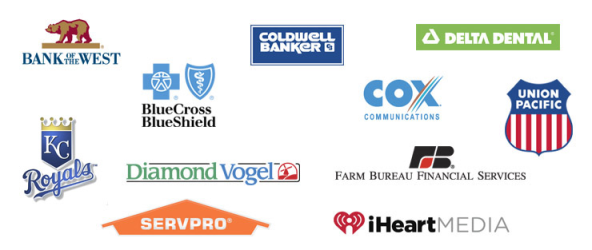By Jeff Beals
It’s hard to admit this, but the weak link in many selling organizations is often the sales leader, the person in charge of driving revenue growth but who almost never receives proper training or mentoring. Not only do most sales leaders lack preparation, they receive very little formal support and guidance. Too many sales leaders feel like they’ve been hung out to dry.
One of the best ways a sales leader can maintain high-level success is to have a peer group of fellow sales experts who act as your own executive advisory board, a group that can answer questions, provide guidance and support you through both good times and bad.
In other words, if you’re a sales leader who has not yet joined a mastermind group, you’re missing out.
CEOs have long taken advantage of mastermind groups. But now in 2018, sales leaders are joining mastermind groups like crazy. By finally getting the support they need, sales leaders are recruiting better reps, developing better strategy and figuring out how to hold their sales teams accountable.
What’s a mastermind group?
It’s a group of professionals, usually about eight to 12 of them, who meet on a regular basis to help each other be more successful in a confidential setting. Leadership can be lonely, because there simply aren’t a lot of places you can seek guidance inside your organization without compromising confidential information or admitting your personal weaknesses.
If you’re asked to join a well-structured mastermind group consisting of high-quality people, consider yourself lucky. You should jump at the opportunity. Actively and enthusiastically participating in a mastermind group is hands-down one of the single best things you can do to up your game and improve your life. Here are seven reasons why:
1. You’re no longer on a deserted island. Once you join a mastermind group, you’re no longer alone. Instead, you’re part of a confidential group of outstanding leaders. Many masterminds allow only one person per industry. That means you can openly share information without your direct competitors hearing about it.
2. You gain transferable knowledge. If your mastermind group includes people from different industries, you can learn amazing ideas and apply them to your industry allowing you to jump ahead of your competitors.
3. You constantly learn new things. In The 7 Habits of Highly Effective People, Stephen Covey advises us to regularly “sharpen the saw,” meaning we take time to open our minds and increase our skills. Your profession is constantly changing; a mastermind group can help you stay on the cutting edge.
4. You develop better habits. A good mastermind is highly supportive yet also holds you accountable. If you say you’re going to tackle a new project one month, your fellow mastermind group members will expect to hear about your experiences the next month. This helps you avoid procrastination.
5. You benefit from a “personal board of directors.” A mastermind group functions as your own advisory board. You can go to them and seek counsel for just about anything. Peer-to-peer advising is effective because it allows you to get things off your chest, figure out what to do before you do it and discuss possible outcomes before they happen. Just think how successful you can be when you have a group of people who are invested in your success just as you are invested in theirs.
6. You might find new clients. While this isn’t necessary an expressed benefit of many mastermind groups, some of your fellow members might be ideal clients for your organization. Mastermind members tend to become friends. They bond together. There’s nobody better to do business with than somebody you completely trust.
7. You become more confident. When you have the opportunity to discuss the pros and cons of a potential decision with a group of talented and experienced people, you will carry out your decisions with much more confidence.
If you hold a leadership position in sales, I have the perfect mastermind group for you. It’s called the “Sales Leader Mastermind Group.” I personally facilitate this group along with my partner Beth Mastre. We are recruiting members right now for our next year which begins November 1st. We have a few spots still available.
Our past members have had very positive experiences in the group, and some of them have even made dramatic changes at their companies because of what they have learned. One of our members credits the group for helping him land one of America’s 15 largest companies as a client.
There are four in-person meetings per year – All the other meetings are virtual, so you can join in no matter where in the world you might be.
Sales leadership can be a lonely existence. Joining this group will help you create a stronger sales culture, attract talented sales reps and drive more revenue while you better manage both your personal and professional life.
Click here now to read a prospectus about this mastermind group!
Here’s what some of our current members have to say about the Sales Leader Mastermind Group:
“I can’t tell you how much I have learned this year. We are killing it on the sales side. We are bringing back clients in a big way, and we are chasing even bigger ones. It’s a great story of learning from mistakes and getting focused. Thank you again for leading our Sales Mastermind Group. It has really been a valuable experience for me, and I’ve made some close connections with members of the group.” – Brent Pohlman, President, Midwest Laboratories, Inc.
“As a leader in your organization, it can be hard to go to other people and ask certain questions or bring up sensitive issues. When you join a group of people who are in the same roles at their companies, the creative energy flows and new ideas come about. Spending time with other successful sales leaders, leads to new revenue strategies and the type of candid feedback that’s really effective. It’s a no-brainer to get involved in a group like this.” – Alan Johnson, Vice President of Business Development, FocusOne Solutions, a C&A Industries Company
“In the mastermind, I can bounce ideas off a group of high-level people and discuss how to handle strategic items, personnel issues or company initiatives. The idea is for each of us to throw a subject on the table, and then a group of your peers analyzes it and provides feedback. You get to know each other very well and form a deep bond, which means you become a valuable resource for each other.“ – Jason Thiellen, Chief Executive Officer, E&A Consulting Group, Inc.
Questions? Send me a note at jeff@jeffbeals.com








